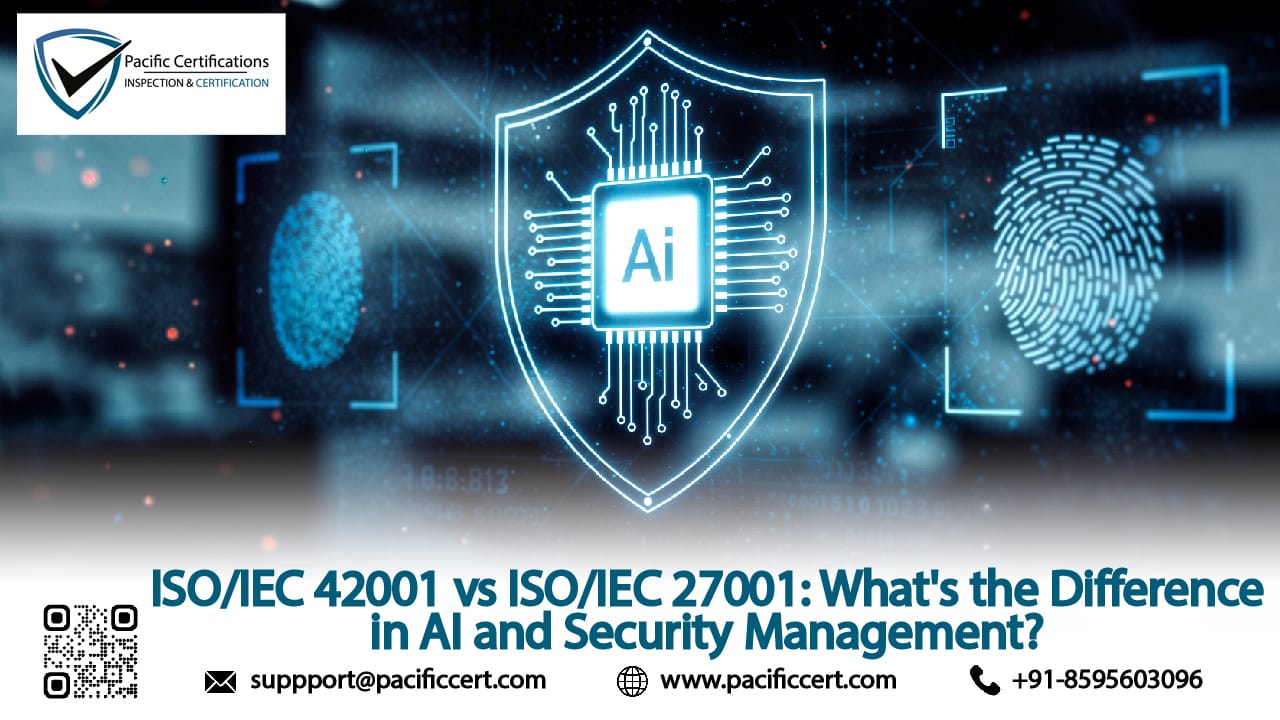
ISO Certifications in Vietnam
ISO certifications play a pivotal role in Vietnam for improving business performance and aligning local companies with global standards. ISO standards help businesses across various industries to optimize operations & ensure product quality.
ISO 9001:2015, focused on quality management, is widely adopted by Vietnamese companies to increase efficiency and customer satisfaction through streamlined processes.
ISO 14001:2015 a key certification for businesses looking to manage waste and reduce their environmental impact. In energy-intensive sectors, ISO 50001 helps organizations achieve better energy efficiency, lowering operational costs and carbon emissions.
For occupational safety, ISO 45001 ensures that workplaces meet high health and safety standards, fostering employee well-being.
Vietnam’s growing food industry relies heavily on ISO 22000 to ensure food safety, especially in exports. Adopting ISO standards enhances competitiveness in international markets and strengthens trust, promoting sustainable growth across sectors.
Popular ISO standards in Vietnam
- ISO 9001 Quality Management System (QMS): This certification focuses on ensuring that organizations meet customer requirements and continually improve their processes and systems. It is widely applicable across various industries in Vietnam.
- ISO 14001 Environmental Management System (EMS): With growing awareness of environmental issues, ISO 14001 certification helps organizations manage their environmental impact effectively & comply with regulations.
- ISO 45001 Occupational Health and Safety Management System (OHSMS): ISO 45001 certification assists organizations in establishing systems to prevent work-related injuries, illnesses, and fatalities, thereby fostering a safe and healthy work environment.
- ISO 27001 Information Security Management System (ISMS): ISO 27001 certification helps organizations manage and secure their information assets, mitigate risks, and ensure data confidentiality, integrity, and availability.
- ISO 22000 Food Safety Management System (FSMS): Vietnam's agricultural and food processing industries can benefit greatly from ISO 22000 certification, which ensures the safety and quality of food products throughout the supply chain.
- ISO 50001 Energy Management System (EnMS): ISO 50001 certification helps organizations in Vietnam optimize energy use, reduce costs, and minimize their environmental footprint.
- ISO 13485 Medical Devices Quality Management System (MDQMS): For companies involved in manufacturing medical devices, ISO 13485 certification is essential to ensure compliance with regulatory requirements and maintain product quality and safety.
Click here to find out more applicable standards to your industry
If you are looking for ISO Certification for your company, contact us today at support@pacificcert.com
Requirements of ISO Certifications in Vietnam
Obtaining ISO certifications in Vietnam involves meeting specific requirements set forth by the International Organization for Standardization. Here's an overview of the mandatory requirements of common ISO certifications in Vietnam:
Requirements of ISO Certifications in Vietnam
ISO 9001:2015 (Quality Management System)
- Documented quality management processes.
- Clear policies for product/service quality assurance.
- Regular internal audits and corrective actions.
- Employee training and continuous improvement efforts.
ISO 14001:2015 (Environmental Management System)
- Identification and control of environmental impacts.
- Compliance with environmental laws and regulations.
- Implementation of waste reduction and recycling initiatives.
- Monitoring and reporting of environmental performance.
ISO 45001 (Occupational Health and Safety Management System)
- Hazard identification and risk assessments.
- Safety policies and procedures to prevent workplace accidents.
- Employee participation in safety management.
- Regular audits and compliance with local labor laws.
ISO 50001 (Energy Management System)
- Monitoring and measuring energy consumption.
- Energy-saving goals and performance tracking.
- Establishment of energy policies and efficient practices.
- Routine assessments for continuous energy improvements.
ISO 22000 (Food Safety Management System)
- Identification of food safety hazards (HACCP principles).
- Control measures throughout the supply chain.
- Documentation of food handling and processing standards.
- Regular monitoring and employee food safety training.
By fulfilling these requirements, organizations in Vietnam can obtain and maintain ISO certifications, demonstrating their commitment to quality and other key aspects of their business operations.
Contact us today to start your certification journey!
Benefits of ISO Certifications in Vietnam
ISO certifications offer numerous benefits to organizations in Vietnam, contributing to their competitiveness, credibility, and operational excellence. Here are some of the key advantages:
- Certified companies gain trust from customers and partners in domestic and international markets.
- Streamlined processes reduce waste, improve productivity, and lower operating costs.
- ISO standards help businesses align with national laws and industry-specific requirements.
- Certifications open doors to exports by meeting international buyer and industry expectations.
- Stronger Environmental and Social Responsibility: Demonstrates commitment to sustainability, energy efficiency, and workplace safety, attracting eco-conscious consumers and investors.
- Effective management systems reduce risks, prevent disruptions, and ensure smooth operations.
- Consistent product quality and service improvements lead to higher customer retention and loyalty.
These certifications allow Vietnamese businesses to align with global best practices, building sustainable growth and fostering long-term success.
Which industries need ISO Certifications in Vietnam
ISO certifications are applicable across various industries in Vietnam, as they provide standardized frameworks for key aspects of business operations. Here are some industries in Vietnam where ISO certifications are commonly sought after:
- Manufacturing: Manufacturing industries in Vietnam, including electronics, textiles, automotive, machinery, and consumer goods, often pursue ISO certifications such as ISO 9001 (Quality Management System) to ensure product quality, consistency, and customer satisfaction.
- Food and Beverage: With a thriving agriculture sector and a growing food processing industry, ISO certifications such as ISO 22000 (Food Safety Management System) and HACCP (Hazard Analysis and Critical Control Points) are essential for ensuring food safety, hygiene, and compliance with regulatory requirements.
- Healthcare and Pharmaceuticals: Hospitals, clinics, pharmaceutical companies, and medical device manufacturers in Vietnam seek ISO certifications such as ISO 13485 (Medical Devices Quality Management System) to ensure the quality, safety, and efficacy of healthcare products and services.
- Construction and Engineering: The construction and engineering sectors in Vietnam benefit from ISO certifications such as ISO 9001 (Quality Management System) and ISO 45001 (Occupational Health and Safety Management System) to enhance project quality, safety, and regulatory compliance.
- Hospitality and Tourism: Hotels, resorts, tour operators, and travel agencies in Vietnam pursue ISO certifications such as ISO 9001 (Quality Management System) and ISO 14001 (Environmental Management System) to deliver high-quality services, minimize environmental impact, and enhance customer satisfaction.
- Information Technology (IT) and Software Development: With a growing IT and software industry, companies in Vietnam seek ISO certifications such as ISO 27001 (Information Security Management System) to protect sensitive data, mitigate cybersecurity risks, and comply with regulatory requirements.
- Logistics and Transportation: Logistics companies, freight forwarders, and transportation providers in Vietnam pursue ISO certifications such as ISO 9001 (Quality Management System) and ISO 45001 (Occupational Health and Safety Management System) to ensure efficient operations, customer satisfaction, and workplace safety.
- Textiles and Garments: Vietnam is a major exporter of textiles and garments, and companies in this industry often pursue ISO certifications such as ISO 14001 (Environmental Management System) and ISO 45001 (Occupational Health and Safety Management System) to address environmental concerns and ensure worker safety.
- Energy and Utilities: With a focus on sustainable development and renewable energy, companies in the energy and utilities sector in Vietnam seek ISO certifications such as ISO 50001 (Energy Management System) to optimize energy use, reduce costs, and minimize environmental impact.
These are just a few examples of industries in Vietnam where ISO certifications are commonly sought after. However, ISO standards are flexible and can be adapted to meet the specific needs and requirements of almost any industry, contact us today to know more!
Pacific Certifications is accredited by ABIS, in case you need support with ISO certification for your business in Vietnam, please contact us at suppport@pacificcert.com or +91-8595603096.

Read More: ISO certifications in Philippines


